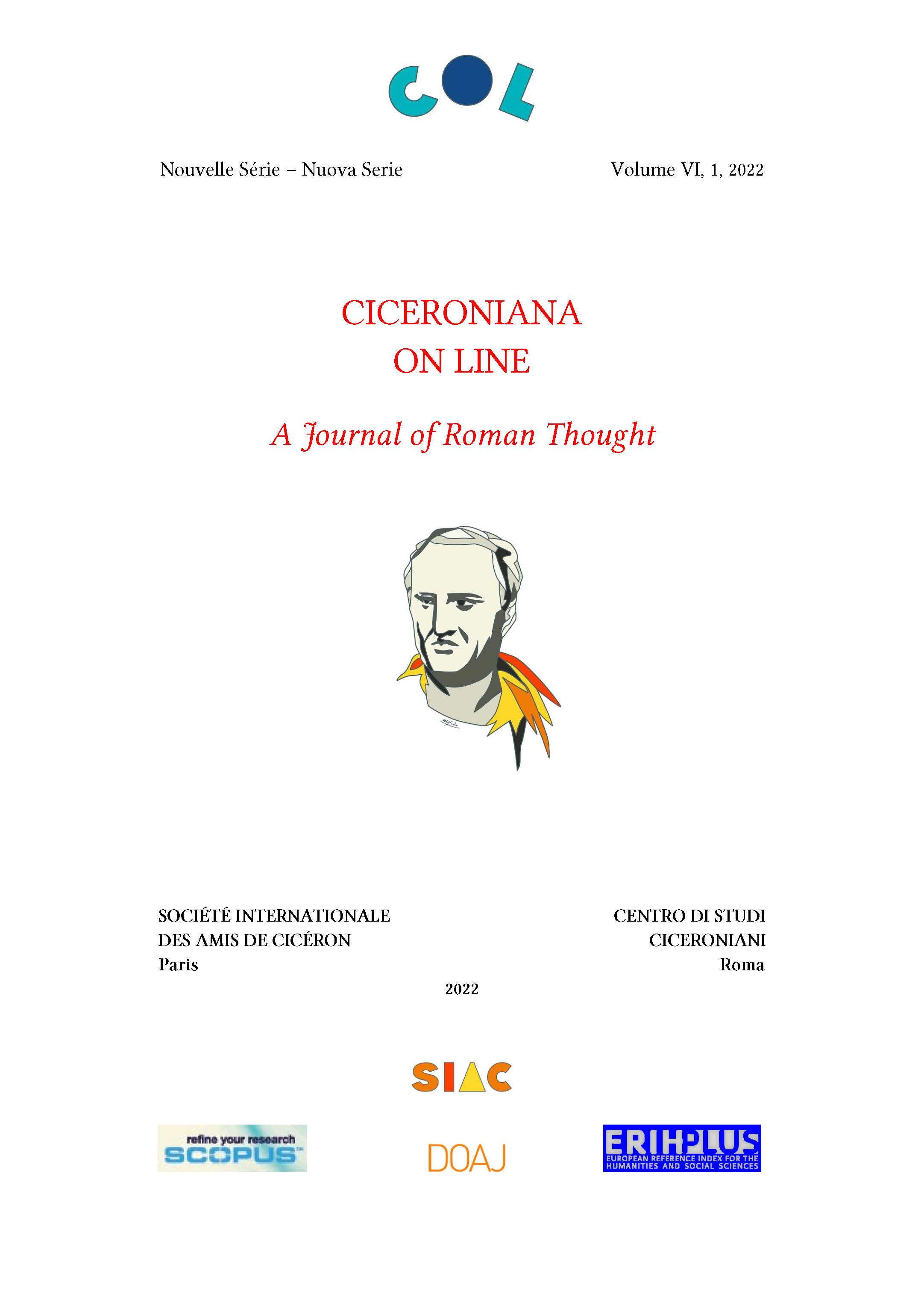Methodological potential of the analysis of some prosodic exempla of imitatio to Cicero in the late antique rhetorician Favonius Eulogius
Abstract
The commentary to the Somnium penned by the little known late antique rhetorician Favonius Eulogius is a precious resource in the study of Latin literature of the classical and post-classical periods. This due not only to its content-focused exegesis, driven by mythopoetic and arithmologic concerns drawn from Ciceronian cosmology; but also because of the attention to intertextuality and allusion, very much part of the intellectual climate of its time both in terms of its philosophical framework and its rhetorical focus—a rhetoric whose canons it aims to imitate in both general and specifically prosodic terms. The instrumental use of Ciceronian clausulae is here put to work to promote the wording of technical-rhetorical dissertations and the literary references interweaved in its reading of the much-celebrated ending of Cicero’s De Republica.
Downloads

This work is licensed under a Creative Commons Attribution-ShareAlike 4.0 International License.
Authors who publish with this journal agree to the following terms:
- Authors retain copyright and grant the journal right of first publication with the work simultaneously licensed under a Creative Commons Attribution License that allows others to share the work with an acknowledgement of the work's authorship and initial publication in this journal.
- Authors are able to enter into separate, additional contractual arrangements for the non-exclusive distribution of the journal's published version of the work (e.g., post it to an institutional repository or publish it in a book), with an acknowledgement of its initial publication in this journal.


 Ciceroniana is listed in the ANVUR (Italian National Agency for the Evaluation of Universities and Research Institutes) as a scientific journal in
Ciceroniana is listed in the ANVUR (Italian National Agency for the Evaluation of Universities and Research Institutes) as a scientific journal in  The journal has been approved for inclusion in DOAJ. The DOAJ listing of the journal is available at
The journal has been approved for inclusion in DOAJ. The DOAJ listing of the journal is available at  The journal has been accepted for indexing in SCOPUS. This important milestone ensures that articles published in Ciceroniana on Line are easily found when searching for library, archives and Information science and it enables Ciceroniana on line authors to keep track of how often their article has been cited by others.
The journal has been accepted for indexing in SCOPUS. This important milestone ensures that articles published in Ciceroniana on Line are easily found when searching for library, archives and Information science and it enables Ciceroniana on line authors to keep track of how often their article has been cited by others. The journal has been approved for inclusion in ERIH PLUS. The ERIH PLUS listing of the journal is available at
The journal has been approved for inclusion in ERIH PLUS. The ERIH PLUS listing of the journal is available at 
